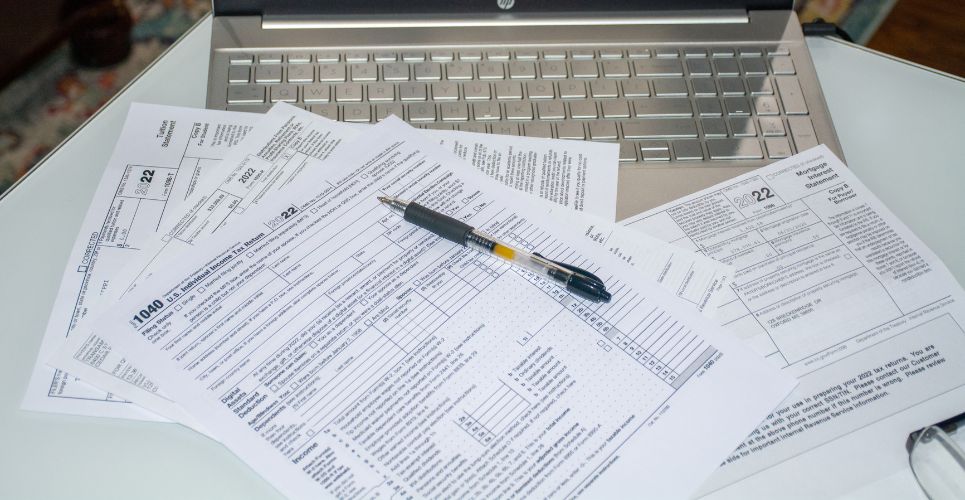
4 Sales Skills Every Tax Preparer Should Know
Enhance your tax preparation business with essential sales skills. Learn how to communicate, build trust, upsell services, and utilize technology for success.

Enhance your tax preparation business with essential sales skills. Learn how to communicate, build trust, upsell services, and utilize technology for success.

Explore the benefits of cloud-based vs. desktop-based tax software, including security, cost-effectiveness, and the latest innovations in tax preparation.

Discover the top reasons your small tax business might be struggling, from lack of modern technology to not using tax software with no EFIN required.

Elevate your tax preparation business with these four effective growth strategies, including leveraging technology and expanding your service offerings.

Discover the top tax return filing errors professional tax preparers should avoid, from overlooking income to not using technology effectively.

Discover how to become a tax service bureau with our comprehensive guide, including key steps, certification, and tips for success in tax preparation.
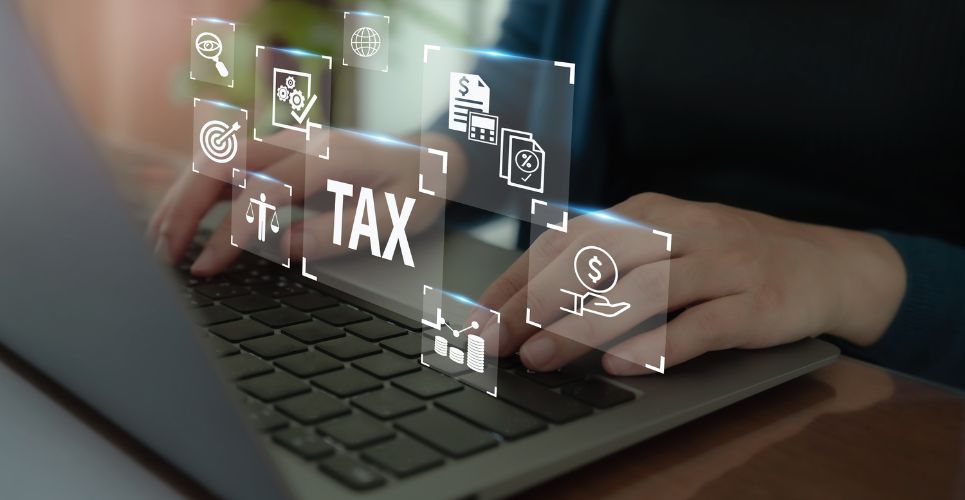
Discover the top tax prep tools that can transform your tax practice. From advanced software to client communication platforms, enhance efficiency and accuracy.

Discover key strategies for hiring the right team for your tax business. Enhance your hiring process with our expert tips, from vetting to technology.

Discover the essential steps to becoming a skilled tax preparer with our guide, covering education, certification, software, and practical tips for success.

Unlock the potential of R&D tax credits for your clients with our essential tips regarding eligibility, documentation, and maximizing benefits.

Explore the advantages mobile apps offer to tax professionals, from enhanced productivity to improved client communication and data security.

Embark on your journey to obtaining an EFIN with our guide, covering eligibility, application, maintenance, and benefits. This guide has what you need.

Explore ways for tax preparers to generate income, from consultancy services to becoming a tax software reseller. Learn how to thrive beyond tax season.

Elevate your tax preparation business with proven strategies to attract new clients. Learn how to expand your customer base as effectively as possible.

When dealing with a sudden large influx of clients and increased business, it’s critical to know how tax preparers can avoid burnout during tax season.
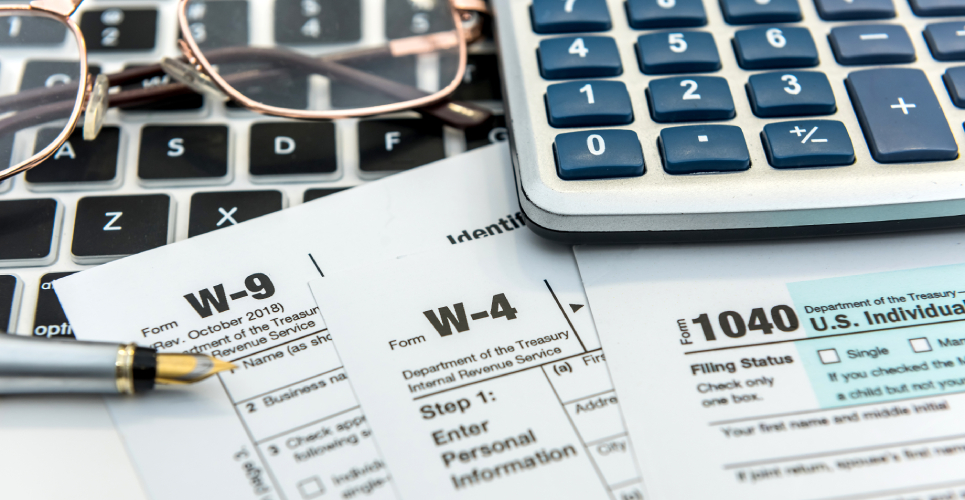
Launch your mobile tax preparation business successfully with these essential tips, from obtaining certification to choosing professional tax preparer software.

Learn how to enhance your tax workflow with advanced strategies and tools such as the Taxes to Go app, ensuring efficiency, accuracy, and client satisfaction.
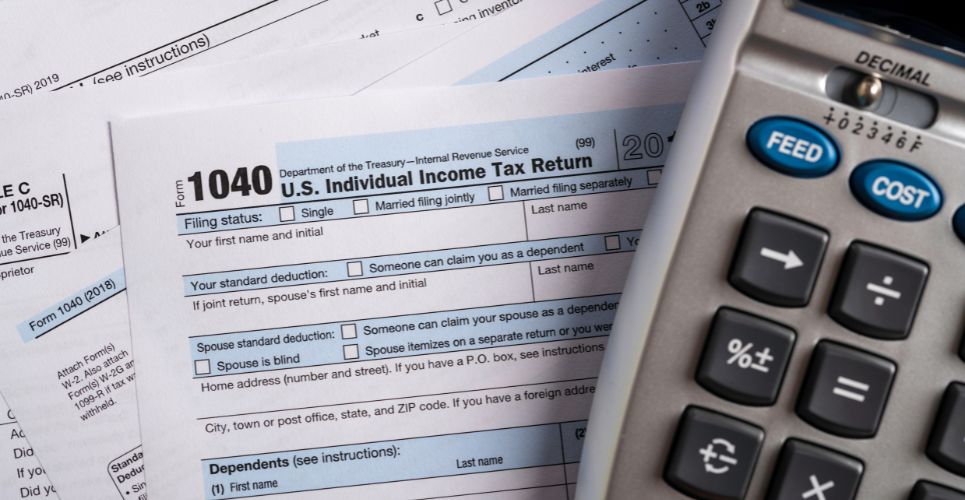
Explore the advantages of becoming a tax service bureau. From expanded client services to increased revenue, discover how this move can elevate your business.

Explore key factors to consider when choosing tax preparation software for your business. Find the perfect blend of functionality and cost-effectiveness.
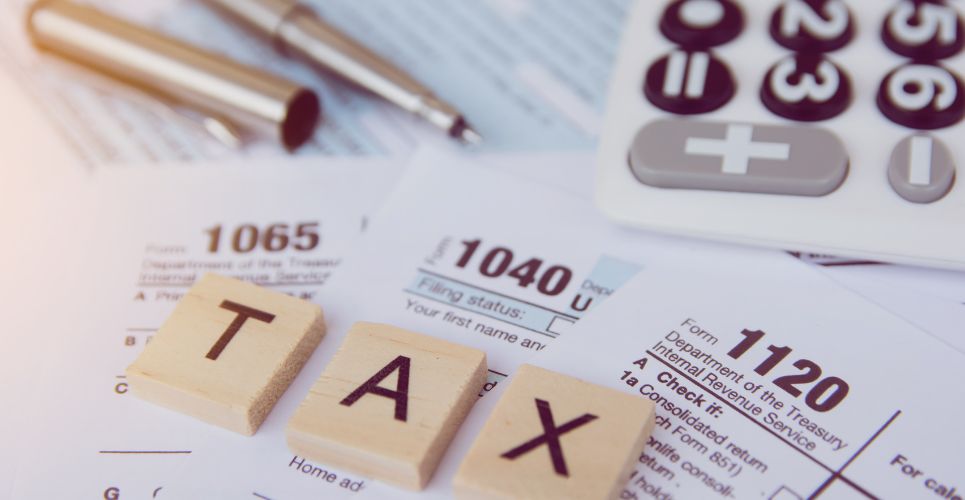
Learn how tax bank products can transform your tax preparation business, offering convenience to clients and streamlining operations to foster growth.
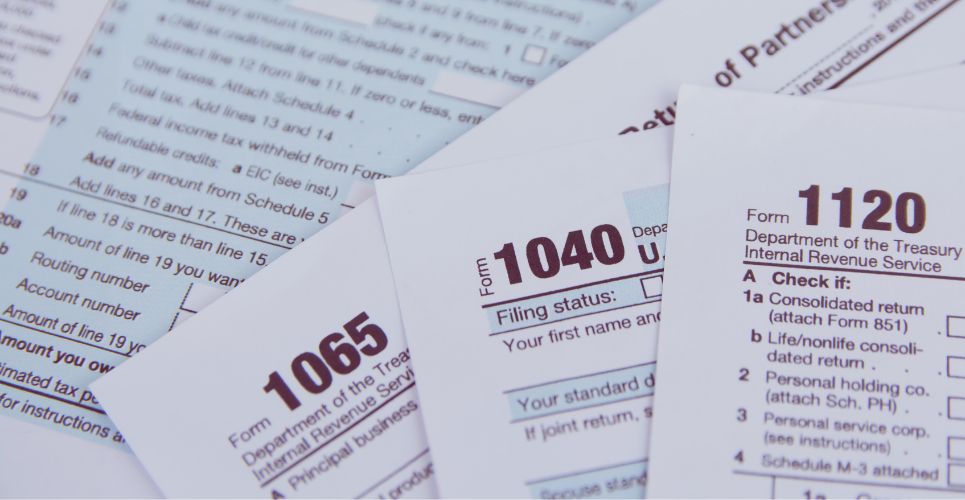
Unlock the potential of starting a tax business without an EFIN. Our guide offers in-depth strategies for building a successful enterprise in the tax industry.

Discover strategies for tax preparers to elevate their client service. Learn about active listening, education, and the benefits of cloud-based software.

Don’t let the lack of an EFIN cause tax filing troubles. Learn essential tips to prevent costly errors when using Professional Tax software with no Efin. File your taxes with confidence! Filing taxes can be daunting, especially for businesses and individuals managing their finances. Professional tax software offers a convenient solution, simplifying complex calculations and ensuring accurate submissions. However, using such software without an Electronic Filing Identification Number (EFIN) can lead to costly errors. This article will explore some easy-to-follow tips to prevent these errors and navigate the tax season smoothly. Choose Reliable Software Selecting the right tax software is the first step toward error-free filings. Opt for well-known, reliable platforms that offer comprehensive support and detailed user guides. Popular software options often have extensive user communities where you can seek help from experienced users, enhancing your understanding and reducing the likelihood of errors. Double-Check Your Entries Even the smallest mistake in inputting data can lead to significant errors in tax calculations. Take your time to double-check all the numbers and information you input into the software. Reviewing your entries ensures accuracy and reduces the chances of costly errors. Stay Updated With Tax Laws Tax laws are constantly evolving. Staying informed about the latest updates and changes in tax regulations is vital. Reliable tax software often integrates these updates into their systems, but it’s still crucial to be aware of the changes affecting your tax situation. Subscribe to newsletters, follow reputable financial blogs, or consult a tax professional for the latest updates. Regularly Back Up Your Data Technology is not infallible. Unexpected crashes or technical glitches can lead to data loss. Regularly back up your tax-related data to ensure the information is recovered. Many tax software options offer cloud-based storage, ensuring your data is safe and accessible from multiple devices. Seek Professional Advice Don’t hesitate to seek professional advice if you are stuck or uncertain about any aspect of your tax return. Accountants and tax professionals are well-versed in tax laws and can provide valuable insights tailored to your specific situation. While this might incur some additional costs, it can save you from costly mistakes in the long run. Utilize Online Resources The internet is an enormous source of information. Numerous online resources, such as IRS publications, tax forums, and educational websites, provide detailed explanations and guides on various tax-related topics. Take advantage of these resources to enhance your understanding of tax laws and procedures. Be Cautious With Deductions And Credits Deductions and credits have the potential to greatly influence your tax liability. While tax software can help you identify potential deductions and credits, it’s essential to understand the eligibility criteria thoroughly. Misapplying deductions or credits can trigger audits and financial penalties. Read the guidelines carefully and, if in doubt, consult a tax professional. Be Mindful Of Security Measures Protecting your personal and financial information is paramount when using tax software. Make sure that your computer is equipped with the latest antivirus and anti-malware software to ensure optimal protection. Use strong, unique passwords for your tax software accounts, and consider enabling two-factor authentication for an extra layer of security. Avoid using public Wi-Fi networks, especially when dealing with sensitive tax data, as they can be vulnerable to hackers. Keep Detailed Records Maintaining meticulous records of your financial transactions and tax-related documents is crucial. Create a system for organizing your receipts, invoices, and any other relevant paperwork. Proper record-keeping helps you accurately report your income and deductions and provides evidence in case of an audit. Many tax software programs allow you to securely upload and store digital copies of your documents. Review Before Submitting Before hitting the submit button, take the time to review your entire tax return thoroughly. Check all the numbers, personal details, and financial information for accuracy. Ensure you haven’t missed any income sources or deductions. Reviewing your return one final time reduces the risk of submitting erroneous information. Once you are confident that everything is correct, file your tax return. Stay Calm And Patient Tax season can be stressful, especially when faced with complex tax situations. Maintaining a sense of serenity and composure is paramount as we navigate through the journey. Rushing through your tax return increases the likelihood of making mistakes. Take your time to read the instructions, understand the questions, and review your answers. Conclusion Professional tax software is valuable for simplifying and streamlining the tax filing process. However, using it without an EFIN can lead to costly errors that can potentially delay your return or result in financial penalties. By following these tips, you can easily minimize the risk of errors and confidently file your taxes. We understand the importance of accurate and efficient tax filing at Keystone Tax Solutions. That’s why our Tax software with no Efin required comes equipped with all the necessary features to ensure error-free submissions. With our comprehensive user guides and exceptional customer support, you can have peace of mind while filing your taxes without an EFIN.

Discover the ultimate guide to taking control of your career by How to start a tax business from home. Learn step-by-step strategies, essential skills, and expert tips to empower yourself financially and build a successful home-based tax consultancy. In today’s fast-paced digital world, the concept of a traditional 9-to-5 job is evolving. More and more people are seeking ways to take control of their careers, their time, and their financial futures. One avenue that holds significant promise is starting a tax business from the comfort of your home. This provides the flexibility to work on your own terms and opens up a world of opportunities in the thriving field of taxation. In this blog post, we will guide you through the process of How to start a mobile tax business, step by step. Educate Yourself: Acquiring The Right Skills While you don’t necessarily need a degree in accounting, acquiring the necessary skills and knowledge is crucial. Enroll in tax preparation courses, attend workshops, and stay updated with the latest tax laws and regulations. Additionally, consider obtaining certifications such as Enrolled Agent (EA) or Certified Public Accountant (CPA) to enhance your credibility and build client trust. Setting Up Your Home Office: Creating A Professional Space Your home office is the heart of your tax business. Set up a dedicated workspace with all the necessary equipment, including a computer, printer, scanner, and high-speed internet connection. Ensure your office is well-lit, organized, and free from distractions, allowing you to focus on your client’s needs effectively. Legalities And Business Structure: Registering Your Business Decide on a suitable legal structure for your tax business, whether it’s a sole proprietorship, partnership, LLC, or corporation. Register your business with the appropriate local and state authorities, obtain an Employer Identification Number (EIN) from the IRS, and fulfill any licensing requirements in your area. Complying with legal formalities ensures your business operates smoothly and professionally. Invest In Software And Tools: Simplifying Tax Preparation Invest in reliable tax preparation software to streamline your workflow. Software like Intuit TurboTax or H&R Block allows you to efficiently prepare tax returns, calculate deductions, and file electronically. Additionally, consider using tools for client management, appointment scheduling, and document storage to enhance your productivity and provide excellent service. Build Your Client Base: Networking And Marketing Strategies Building a strong client base is essential for the success of your tax business. Begin by extending your services to friends, family, and nearby businesses. Utilize social media platforms, create a professional website, and leverage online advertising to reach a broader audience. Networking with other professionals and joining local business organizations can also help you establish valuable connections and attract potential clients. Provide Exceptional Service: Building Trust And Credibility The key to a successful tax business is providing exceptional service. In all your interactions with clients, prioritize transparency, honesty, and reliability. Strive for accuracy in tax preparation, adhere to deadlines, and always be available to address your client’s concerns. Building trust and credibility ensures client satisfaction and leads to positive referrals and repeat business. Stay Updated And Evolve: Embracing Continuous Learning The field of taxation is constantly evolving with new laws, regulations, and technologies. Stay updated with the latest changes by attending seminars, webinars, and industry events. Embrace continuous learning, adapt to new technologies, and expand your services to cater to diverse client needs. Being proactive and innovative will set you apart in the competitive tax business landscape. Focus On Exceptional Customer Service: Building Lasting Relationships Exceptional customer service goes beyond accurate tax preparation. Create a personalized experience for your clients by actively listening to their concerns, explaining complex tax matters in simple terms, and providing valuable financial advice. Building lasting relationships with your clients fosters trust and encourages them to return year after year. By understanding their unique financial situations and offering tailored solutions, you become not just a tax preparer but a trusted advisor, ensuring the longevity of your business. Embrace Ethical Practices And Integrity: Upholding Professionalism In the tax business, ethical practices and integrity are non-negotiable. Upholding the highest standards of professionalism not only safeguards your reputation but also earns the respect and trust of your clients. Always adhere to the tax laws and regulations, maintain client confidentiality, and avoid any conflicts of interest. By conducting your business with integrity, you protect yourself legally and contribute to the overall credibility of the tax industry. Ethical practices build a solid foundation for your business, allowing it to thrive in the long run. Conclusion Starting a tax business from home offers numerous benefits and opportunities for growth. You can establish a successful tax business by educating yourself, setting up a professional workspace, complying with legal formalities, and investing in software and tools. Focus on networking and marketing strategies to build your client base, provide exceptional service to foster trust and credibility, embrace continuous learning to stay updated and relevant, and uphold ethical practices to maintain professionalism. With dedication, hard work, and a commitment to excellence, you can build a thriving tax business that provides valuable services to clients and contributes positively to the community. So what are you waiting for? Get started on your journey today! Contact Keystone Tax Solutions for more information and support.

Unlock financial opportunities by knowing How to become a tax software reseller. Learn the essentials of partnering with top providers, setting up your business, and mastering effective marketing. In the modern era of technology, the realm of business is in a perpetual state of transformation. Entrepreneurs and small businesses always look for innovative solutions to streamline their operations and save time and money. One such solution that has gained immense popularity is tax software. As tax laws become increasingly complex, individuals and businesses are turning to tax software to simplify the tax filing process. Becoming a tax software reseller can be a lucrative opportunity for those seeking an entrepreneurial venture. In this article, we will guide you through the steps of How to become a service bureau, outlining the benefits and providing valuable insights into this exciting business opportunity. Understanding The Basics Before diving into the world of tax software reselling, it’s essential to understand the basics. Tax software is a digital tool designed to help individuals and businesses prepare and file their taxes accurately and efficiently. As a reseller, your role would involve partnering with established tax software providers and selling their products to end-users, earning a commission for every sale made. Choosing The Right Tax Software Partner The first step in becoming a successful tax software reseller is choosing the right partner. Research various tax software providers, comparing their features, pricing, and customer reviews. Look for a provider with a user-friendly interface, comprehensive features, excellent customer support, and a strong reputation in the market. Remember, your success as a reseller is closely tied to the quality and reliability of your software. Setting Up Your Reselling Business Once you’ve selected a tax software provider to partner with, it’s time to set up your reselling business. Register your business, obtain any necessary licenses or permits, and create a professional website showcasing your tax software products. Invest in user-friendly website design and ensure that your site is mobile-responsive, as many users access websites through smartphones and tablets. Marketing Your Tax Software Products Effective marketing is vital to attracting customers and driving sales. To promote your tax software products, utilize social media, search engine optimization (SEO), email marketing, and online advertising. Highlight the benefits of using tax software, such as time savings, accuracy, and convenience. Consider offering special promotions or discounts to entice potential customers, especially during tax season when demand is high. Providing Excellent Customer Support Outstanding customer support is essential for building trust and retaining customers. Ensure that you are readily available to assist customers with any inquiries or issues they may encounter while using the tax software. Provide detailed product information on your website and create helpful resources like FAQs and video tutorials to guide users through the software’s features and functionalities. Prompt and helpful customer support can significantly enhance your reputation as a reseller. Earning Commissions And Scaling Your Business As a tax software reseller, you will earn commissions for every sale made through your efforts. Focus on delivering excellent customer service, building strong client relationships, and continuously improving your marketing strategies to increase sales and commissions. As your business grows, consider expanding your product offerings to include additional software solutions related to finance, accounting, or business management. Diversifying your product portfolio can attract a broader customer base and boost your revenue. Expanding Your Network And Building Partnerships Networking is a powerful tool in the world of business. Attend industry events, conferences, and trade shows related to finance, accounting, and taxation. These events provide excellent opportunities to connect with potential clients, software developers, and other resellers. Building strong relationships with other professionals in your field can open doors to new business partnerships and collaborations. Consider forming alliances with accounting firms, tax consultants, and financial advisors. By offering them incentives to recommend your tax software solutions to their clients, you can create a mutually beneficial relationship, expanding your customer base and increasing your sales. Staying Informed And Adapting To Market Trends The world of technology is ever-changing, and tax laws are continuously evolving. Stay informed about the latest trends in tax software, software integration, and cybersecurity. Regularly update your knowledge about changes in tax regulations and compliance requirements. By staying ahead of the curve, you can provide valuable insights to your clients, positioning yourself as a knowledgeable and trustworthy expert. Additionally, be adaptable to market trends and customer demands. Monitor customer feedback and adjust your product offerings and services accordingly. Embracing innovation and being flexible in your approach can help you stay competitive and relevant in the dynamic landscape of tax software reselling. Conclusion Becoming a tax software reseller can be a lucrative and rewarding venture, allowing entrepreneurs to capitalize on the growing demand for digital tax solutions. By understanding these essential steps and continuously adapting to market changes, you can build a successful reselling business and thrive in this exciting industry. At Keystone Tax Solutions, we offer a comprehensive tax software reselling program, providing you with all the necessary tools and support to kickstart your business. Contact us today to learn more about our products and services and join our network of successful resellers.

Tax preparation is a complicated and often daunting task for many people. After all, the tax code can be complicated, and the process of filing taxes can be confusing and time-consuming. Starting a business that specializes in tax preparation could be a great way to help people navigate this complex process. There are a number of advantages to starting a tax preparation business. For starters, you’ll be able to provide much-needed assistance to individuals and businesses who need help with their taxes. Additionally, you can offer valuable tax advice and guidance that will help your clients save money and maximize their tax refunds. Finally, tax preparation businesses can often provide services such as tax planning, bookkeeping, and tax audit assistance, which can lead to additional revenue streams. So in today’s article, let’s explore some tips and advice to help you get started on your business. Here’s what you need to know: 1 – Research Your Local Area and Potential Clientele Researching your local area and potential clientele is key to the success of any business. Knowing the people in the area, their needs, and the market conditions can help you develop an effective marketing strategy and ensure that you reach the right customers. When researching your local area, start by gathering as much information as possible. Look at census data to understand the population, demographics, and income levels. Once you’ve identified your potential clientele, you’ll need to research the tax laws and regulations that apply to them. This research should include the latest tax laws, tax deductions, credits, penalties, and any local tax regulations. Understanding the tax code is essential for any tax preparer, as it will help you provide the best service to your customers. 2 – Establish a Legal Entity You are legally responsible for all its activities when you start a business. If your business does something wrong, you could be held liable for the damages it causes. Establishing a legal entity for your business can help protect your assets from any liability your business may incur. Additionally, forming a legal entity can provide you with certain tax benefits. For instance, you can deduct business expenses, such as office supplies or travel expenses, from your taxes. You can also take advantage of certain tax breaks or credits available to certain businesses. 3 – Look into Using Professional Tax Software Professional tax software can help you automate your tax preparation process and ensure accuracy. This software provides a comprehensive system that includes data entry, calculations, and filing. It can also help you manage your client information, prepare returns, and track payments and refunds. When looking for professional tax software, there are a few key features you should consider: Professional tax software is crucial in an increasingly fast-paced business environment. Investing in it is one of the best ways to boost your productivity and efficiency. The Bottom Line Starting your tax preparation business is a great way to help yourself and your local community. Not only will you benefit financially, but you will also be able to provide a valuable service to your clients. A successful tax preparation business can also create jobs in the local economy, which can help to stimulate economic growth and development. Finally, a successful business can help to improve the local tax system, making it easier for everyone to understand and comply with the tax laws. As tax preparers, you are the experts in these situations, but you can’t deny that it can be much to handle. At Keystone Tax Solutions, we want to help you. We offer the best professional tax software to make your and your clients’ life easier!

As the tax preparer, you are the one who is responsible for ensuring that your client’s tax returns are filed properly and on time. It can be quite the responsibility, but it is possible as long as you’re updated on the tax rules and regulations within the US while utilizing software that can help you in your endeavors. Tax preparers should be in the midst of creating or filing the 2022 tax returns that they will need to file in 2023. This is because the new tax laws enacted previously may be eliminated. To name a few, there’s the Private Mortgage Insurance Deduction, Health Coverage Tax Credit, Sick Leave and Family Leave for the Self Employed and more. But, in addition to the expiration of these tax breaks, there are several other changes that tax preparers need to be aware of for this tax season. Let’s delve into some of the examples: 1) Child and Dependent Care Credit Certain tax provisions for the extended Child & Dependent Care Credit have already reverted back to an older version at the end of 2022, returning to its original 2020 provisions. The most notable limit would be how the child and dependent care credit is no longer refundable. In addition to that, there will be certain expense limits that will apply to 2022 tax returns. Tax preparers can expect about a $3,000 expense limit for one qualifying child. For more than one qualifying child, the expense limit is $6,000. 2) COVID Retirement Plan Contribution Amid the pandemic, taxpayers were encouraged to take an early retirement distribution through their returns, going up to $100,000 without penalty. However, this distribution was spanned out over three years of tax returns. The first installment was recognized on a taxpayer’s 2020 tax return, while the second one was on their 2021 tax return. Following that pattern, the third and final installment on their 2022 tax return with the use of Form 8915-F. 3) Energy- Efficient Tax Credits The US tax code regarding energy efficiency is constantly changing. In the past, there have been tax credits available for energy-efficient home improvements, such as insulation, windows, and heating and cooling systems. There will be an extension for them to consider as 2022 returns are filed. For instance, tax preparers should be aware of the new tax credit for alternative fuel vehicles. This credit, which is around $7,500, applies to a variety of alternative fuel vehicles, including hybrid cars, electric cars, and fuel-cell cars. 4) Premium Tax Credits The amount of a person’s premium tax credit is typically based on the cost of the health plan premium and the household income. The premium tax credit is available to help pay for health plans purchased through the health insurance marketplace. Essentially, taxpayers can use this tax credit to lower monthly payments on their health insurance. While this credit was initially meant to expire in 2021, it has been extended until 2025. It’s best to take this in mind when filing 2022 returns. Conclusion The rules surrounding the tax code are constantly changing, and it’s important to be aware of the most recent changes. By familiarizing themselves with these changes, tax preparers can ensure that they can properly prepare their clients’ returns for the upcoming tax year. Keystone Tax Solutions is a leader in the industry, offering the best professional tax software for tax preparers. Get in touch with us today!

Tax filing can be a complex process, especially when you have multiple sources of income or investments. If you make mistakes when filing, the IRS may issue a penalty. To avoid this, seeking professional help for your tax preparation and filing is wise. Professional tax preparers can ensure accuracy and help you stay compliant. Being aware of the advantages of a particular thing or situation is advantageous. Being informed of the advantages can help one make informed decisions and maximize their potential, like: More Money Saved Getting a tax expert to assist you with your filing can be a great way to give you a sense of security. They can aid you in finding any potential deductions and credits you may have yet to be aware of. Furthermore, when you factor in the amount of time you save by not having to do the filing yourself, having a professional on the job is well worth it. They are up to date on all the latest tax regulations, so you can have peace of mind that you’re getting the most out of your return. In the long run, it’s a great investment. More Time Managed Well Having your taxes done can be quite stressful. Collecting the documents, forms, and files required for your return takes a lot of work. Additionally, you may be worried about making mistakes that could lead to costly consequences. People with demanding jobs, such as doctors, lawyers, and so forth, may need help prioritizing tax preparation accounting, yet it’s still essential to get it done. That’s why hiring a knowledgeable tax professional can be incredibly helpful. This will help to ensure everything is completed accurately and efficiently. Fewer Errors Made Having to file taxes can be an intimidating process, and you may be at risk of making mistakes. A tax expert can assure you that your taxes are accurate and up to date. They are knowledgeable in this area and can help you prevent any errors. The Internal Revenue Service (IRS) has a list of the most frequent errors that occur when filing taxes, such as incorrect calculation of taxable income and incorrect placement of payments. By enlisting the services of a tax professional, you can avoid these common mistakes. More Assistance with Auditing If the IRS requests an audit, getting help from a tax professional is your best bet. They will review your records and ensure your response is accurate and compliant. This could help you avoid any penalties or fines the IRS might impose. In Closing Tax season can be a real burden, so why not get help from the experts? Professional tax preparers offer the convenience and security of doing your taxes right. They’ll take the time and effort to ensure you get all the deductions and credits you’re entitled to and help you out in the event of an audit. Furthermore, these services can save you money and time. By having an accountant help you, you can be sure that your taxes are done properly, and you’ll be able to relax during tax season. Choose Keystone Tax Solutions If you are looking for professional tax preparers, choose our team! We provide clients with affordable tax software that grows your business! Start now at only $399 by calling 1-800-504-5170 or emailing support@keystonetaxsolutions.com!

Tax season is an important time of year. Taxpayers need to be aware of the most recent tax law changes in order to ensure they are filing their returns correctly and taking advantage of available tax benefits. As a tax preparer, it is important to know the most recent changes in order to provide accurate and up-to-date advice to clients. In the United States, there are several important tax law changes that have been passed for 2022 that will need to be recalled for filing taxes in 2023. These changes may affect the amount of taxes owed, the deductions available, and the credits taxpayers can claim. Knowing these changes can help preparers provide better advice to their clients and ensure that they are taking full advantage of all the available tax benefits. Here are eight important tax law changes to remember for 2022 returns in 2023: 1) Recovery Rebate Credit The recovery rebate credit is seen as a tax credit available to eligible taxpayers in the United States. The credit is designed to provide financial assistance to individuals and families who have been affected by the coronavirus pandemic. This tax credit is available to eligible taxpayers who did not receive the full economic impact payment (EIP) in 2020 or 2021. The recovery rebate credit is equal to the difference between the EIP the taxpayer actually received and the maximum EIP they were entitled to receive. Keep in mind that clients can only claim this if their 2020 or 2021 tax return hasn’t been filed yet. 2) Child Tax Credit Child Tax Credit (CTC) is a credit available to taxpayers with dependent children, specifically under the age of 16. The CTC was created to help families with children by providing a tax break for those with incomes below certain thresholds. It’s been in effect for years and has been modified several times. The CTC can be claimed by both the parents or guardians of the child. The credit costs up to $2000 per child, but only $1500 is refundable. Annual increases will entail a total refund of $1600 in 2023. As a tax preparer, it’s important to know that taxpayers who owe taxes will have the credit applied to their tax liability. 3) Earned Income Credit The earned income credit is a type of tax credit that’s available to taxpayers who have low to moderate incomes. It is designed to provide financial assistance to those working but still struggling to make ends meet. EIC is a refundable tax credit, meaning that even if you owe no tax, you may still be eligible to receive money from the government through the EIC. Like previous types, the credit is refundable, which means that taxpayers who owe taxes will receive the credit as a refund. However, the guidelines will be reverting back to 2020 guidelines in 2023, forgoing the extended provisions and requirements. Conclusion In conclusion, it is important for tax preparers to be familiar with the important tax law changes in the US for 2022. Such information can help you properly prepare taxes for their clients in 2023. Stay tuned for part two. Looking to integrate professional tax preparation software this 2023? Keystone Tax Solutions offers professional tax software for tax preparers in the USA. Try it today!

Filing taxes can be complicated and stressful, and mistakes on your return can complicate things even further. But what happens if a tax preparer makes a mistake on your return? Understanding the steps you can take if a preparer messes up your taxes will help you rest assured that you’re taking the right steps to get your return corrected. What to Do If You Find a Mistake From Your Tax Preparer Is A Tax Preparer Liable for Mistakes? You are responsible for any errors or omissions on your tax return, even if a tax preparer prepared it. If the tax preparer makes a mistake that causes you to owe additional taxes, penalties, or interest, you are the one who must pay those fees, not the tax preparer. Are accountants liable if you’re audited? No, accountants are not liable if you are audited. The IRS determines if a taxpayer has complied with federal tax laws. If the IRS finds discrepancies in a taxpayer’s return, the taxpayer is ultimately responsible for any taxes, penalties, or interest that may be due. Suing A Tax Preparer for Mistakes If you believe that your tax preparer has made errors or omissions on your return that have caused you to owe additional taxes, penalties, or interest, you can file a civil lawsuit against the tax preparer. Generally, you must be able to prove that the tax preparer was negligent in preparing your return and that the mistakes were directly responsible for the additional taxes, penalties, or interest that you owe. It is important to note that the IRS does not get involved in any civil disputes between taxpayers and tax preparers. To Sum Up If a tax preparer messes up your return, it can have significant consequences for you and your preparer. It is important to review your return carefully and, if necessary, seek professional advice. In addition, if you believe that your preparer has made an error, contacting them as soon as possible is important to rectify the situation. With the proper steps and guidance, you can ensure that your taxes are properly filed and that any errors are corrected promptly and efficiently. Keystone Tax Solutions offers the best professional tax software today. We are a leader in the professional tax software industry with over 15 years of experience. Get started now.
Copyright © Keystone Tax Solutions 2025. All Rights Reserved.